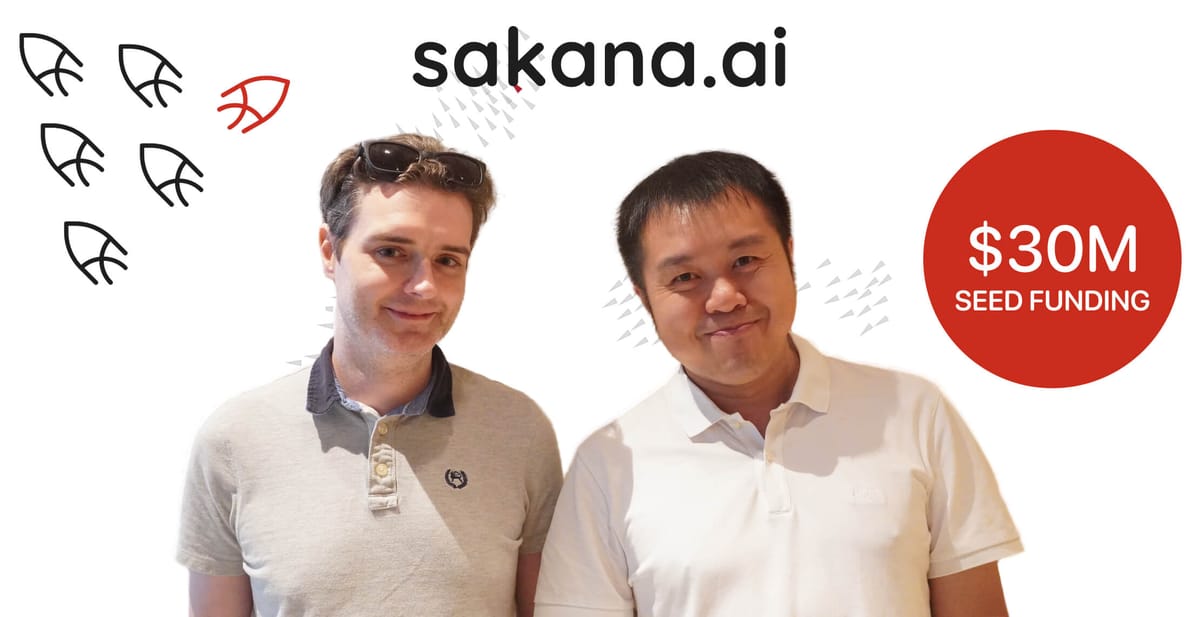
Tokyo-based AI startup Sakana AI has raised $30 million in seed funding to develop a new paradigm for AI inspired by fish. The company was formed just last summer by former Google execs Llion Jones and David Ha.
The rare seed round was led by Silicon Valley heavyweight VC firms Lux Capital and Khosla Ventures. Several prominent corporations also invested, including Sony Group, NTT Group, and KDDI.
Sakana AI promises a radically different approach from today’s trend of ever-larger AI models. As Yosh Wolfe of Lux Capital explained, “Everyone in AI is chasing yesterday’s transformer architectures and trying to push scaling laws. Lux is always on the quest for what’s next.”
What Lux and others spy on the horizon is Sakana AI’s push past incremental advances in existing techniques towards more foundational breakthroughs inspired by nature's design principles. Just as schools of fish and flocks of birds demonstrate emergent intelligence, Sakana AI aims to develop AI "constellations" - interconnected networks of specialized models exhibiting collective intelligence.
This method comes from direct observation of complex adaptive systems, according to Sakana AI CTO Llion Jones, a pioneer in transformer architectures.
"We believe current AI models are too rigid and brittle, engineered like buildings rather than able to adapt. We take inspiration from collective intelligence in nature and principles like evolution and emergence to build more flexible, responsive AI." - Llion Jones
The choice of headquarters in Tokyo also reflects Sakana AI’s unconventional outlook. Silicon Valley has become ground zero for the AI land grab, with companies aggressively competing for talent. Sakana AI intentionally located halfway around the world, believing Tokyo offers key advantages. These include strong technical infrastructure, an educated workforce able to contribute to research, and opportunities to develop non-Western-centric models.
Sakana AI's founding team is a testament to the company's ambitious goals. With members hailing from Google, Preferred Networks, Mercari, and Stability AI, the team brings a wealth of experience and a proven track record in AI development.
Yet, the fledgling startup enters an extremely crowded space, with a "who's who" list of competitors. Still, Jones and Ha believe excessive commercialization has stifled creativity among some AI researchers. They aim for Sakana to recapture the spirit of exploration and discovery from AI’s early days.
Early funding and support underscores the confidence top-tier investors have in Sakana AI's potential. The startup has already announced partnerships, including with telecom leader NTT to work on energy-efficient “constellations” of lightweight models.
With the new funding, Sakana AI is building a world-class AI lab and hiring more talent interested in foundational research rather than commercial products. This pivot back to principles that launched the AI boom points to a startup ready to reinvent what AI can be.

